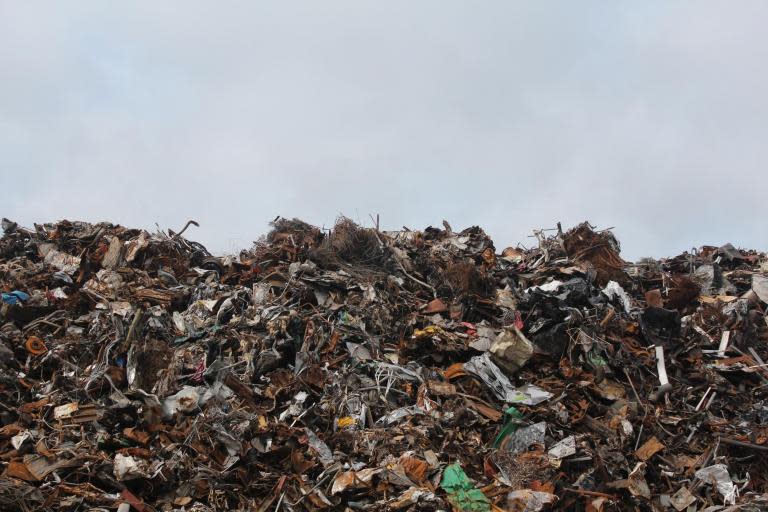Waste and Resource Strategy to make manufacturers pay more to dispose of their plastic products
Plastic products that contain less than 30 per cent of recycled material will be subject to a plastic tax according to government measures released today.
The Waste and Resources Strategy drawn up by the Department for Environment, Food and Rural Affairs also aims to make manufacturers more responsible for the products they put into the environment.
According to the Strategy, released today, companies will be included in a ‘polluter pays’ scheme, based on ‘extended producer responsibility’.
A recent report from Friends of the Earth called for a measure that held producers responsible for disposing of their products after a survey revealed no waste authorities were disposing of compostable products properly.
The long-awaited strategy set out five goals that it hopes to achieve over the next few decades in order to reduce waste and move to a more sustainable society.
Five goals set out in the Waste and Resource Strategy
1. Work towards all packaging being recyclable, reusable or compostable by 2025
2. Work towards eliminating food waste landfill by 2030 (and put all food waste into compost)
3. Eliminate 'avoidable' plastic waste over the lifetime of the 25 Year Environment Plan
4. Double resource productivity (using products for as long as possible before they become waste) by 2050
5. Eliminate 'avoidable' waste of all kinds by 2050
Among other measures outlined in the report are sustainability incentives for consumers, to help them make more eco-friendly choices.
This may take the form of an extended plastic carrier bag charge, or a similar levy. The Strategy has also pledged to look into ways of educating consumers about the sustainability of different products – using ‘Ecolabel’ style logos that tell the buyer whether or not their product can be recycled.
The Strategy notes that 470,000 tonnes of recycling in England were reported to have been rejected from recycling plants in 2017 – and has suggested more frequent waste collections to try and combat this issue, noting there has been “insufficient action” so far in improving recycling.
It suggests a “consistent set of dry recyclable materials” will be collected from businesses and households but has not yet defined what these materials will be. The report says a date of introduction of this policy will be “subject to discussions at spending review.”
Anti-plastic campaign Group Friends of the Earth praised some of the strategy’s measures, but insisted tougher action must be taken rather than relying on voluntary actions.
Julian Kirby, waste campaigner at Friends of the Earth, said: “At long last the government appears to be getting serious about tackling England’s vast mountains of waste.
“Forcing firms to pay the full cost dealing with the packaging they create is great news, and will give companies a clear incentive to produce less waste in the first place.
“But while there are many welcome initiatives in this strategy, there is still too much reliance on voluntary measures, and precious little commitment to targets to reduce waste and boost recycling.
“This strategy also gives little recognition to the vital importance of cutting the production of plastic in the first place. Recycling has a role to play - but at the end of the day it will only slow the rate of increase in plastic pollution.
“Michael Gove must come up with a plan to phase out the use of non-essential single-use plastics by 2025, and end the flow of plastic pollution from all sources - including from paints, tyres and clothing.”
Greenpeace echoed the calls for tougher action, while praising the decision to make producers pay their way in disposing of their products.
Referring to the packaging commitments in the strategy – which promise to legislate on packaging reform in 2021 and bring legislation into effect in 2023 – the environmental campaigners said this was not soon enough.
Louise Edge, senior oceans campaigner for Greenpeace UK, said: “The really encouraging part of these proposals are the plans to ensure that companies who create and sell plastic packaging will at last pay for dealing with the consequences.
“This should be a big help in getting difficult to recycle and expensive plastic packaging off our supermarket shelves, driving better product design and much needed investment in refillable and reusable packaging.
“However, these proposals only enter law in 2023 – after five more years of a truckload of plastic entering our oceans every minute. There’s no need for the government to wait that long to ban excessive and non-recyclable plastics.”
Hugh Tagholm, CEO of Surfers Against Sewage, said the extended responsibility of manufacturers was "welcome" but added the idea to bring in new legislation in 2023 "would only result in millions more bottles on beaches and in our rivers."
Recycling group Viridor praised the government for listening to "our and the wider industry's representations" - referring to the 'polluter pays' measure in particular. Waste collection management company Biffa also welcomed the measure and added a clearer description of how different packaging can be recycled should see a rise in recycling levels.

 Yahoo News
Yahoo News 

